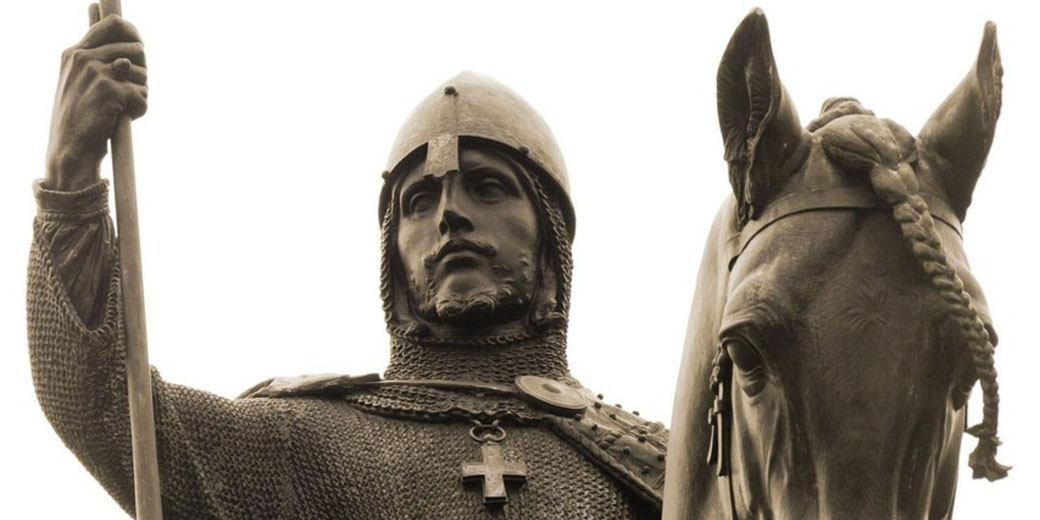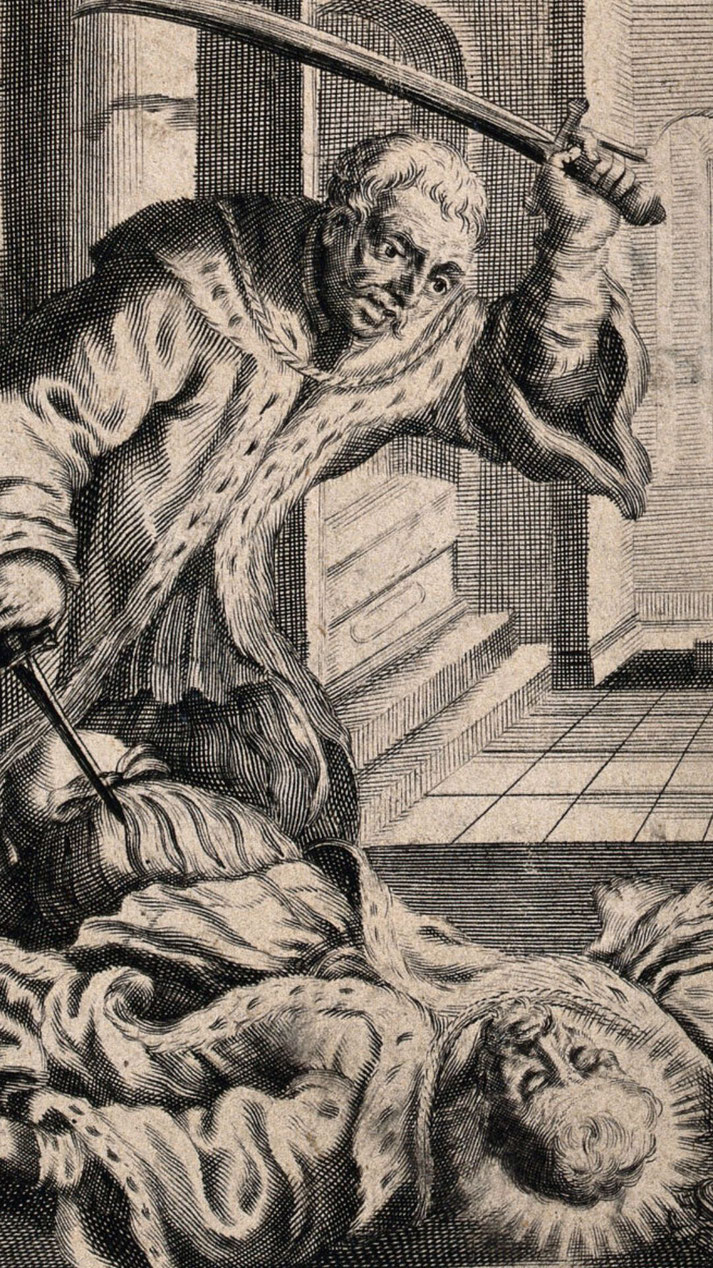Who was the real 'good King Wenceslas'? The tragic life of the historical person behind the carol

Every December, the carol Good King Wenceslas fills churches, homes, and shopping centres with a story of Christian charity.
The lyrics describe a kind monarch who braves the bitter cold to help a poor man gather firewood. The image is reassuring and well known, yet the truth behind the song reveals a much sadder story.
What we know about the historical King Wenceslas
Wenceslaus I was born between 907 and 911 into the Přemyslid dynasty, which ruled Bohemia during a time of major change.
His father, Duke Vratislaus I, governed a territory that lay between the rising power of the German kings and the deep traditions of Slavic paganism.
His mother, Drahomíra, belonged to a pagan tribe and remained closely tied to its customs.
Under the care of his grandmother Ludmila, who was honoured as a saint soon after her murder in 921, Wenceslaus received a Christian education that included Latin instruction and religious training.
She encouraged his devotion to the Church and introduced him to Roman Catholic rituals.
As a result of this upbringing, Wenceslaus became closely associated with the Church and adopted a lifestyle that focused on faith and Christian behaviour.
However, tensions soon emerged between Ludmila and Drahomíra, who viewed her mother-in-law as a political rival and sought to control her son’s future.
After the death of Vratislaus in 921, Drahomíra took power as regent. In an attempt to remove Ludmila’s influence, she arranged to have her murdered at her home in Tetín.
This crime shocked the Christian nobility and turned Ludmila into a revered martyr.
Once Wenceslaus came of age, he dismissed his mother from court and began a program of Church support that restored Ludmila’s policies and ideals.
Over the following years, Wenceslaus ruled with the support of Christian clergy and relied heavily on the growing influence of Latin Christianity.
He worked to reduce his mother’s remaining influence, strengthened his connection to the bishopric in Regensburg, and pushed Bohemia towards the cultural world of the Holy Roman Empire.
He promoted Latin clergy over Slavic priests and encouraged the construction of churches, including the foundation of the Church of St. Vitus in Prague, which later became a cathedral.
How he became duke (not 'king')
At no point during his lifetime did Wenceslaus hold the title of king. He ruled as Duke of Bohemia from 921 until his death, though his mother held power as regent, as mentioned above, until he came of age around 922–924.
Later writers elevated him to kingship in tribute to his piety, and Emperor Otto I granted him the royal title after his death, but he was never crowned or granted royal status under the law of the time.
In forming alliances with powerful Christian monarchs, Wenceslaus promised loyalty to King Henry the Fowler of East Francia.
He agreed to pay regular tribute after a threatened German invasion around 929.
He received protection in return. Many of his own nobles considered this decision shameful and feared that Bohemia would lose its independence.
Nonetheless, Wenceslaus believed this arrangement offered the best chance to maintain peace and preserve his rule.
Under his leadership, churches received land grants, foreign clergy gained influence, and Latin customs replaced older Slavic practices in government.
Noble families who had profited under the old order grew increasingly resentful.
They distrusted Wenceslaus’ ties to German authority and viewed his religious reforms as an attack on Bohemian tradition.
In contrast to his predecessors, he avoided military raids and sought peace with neighbouring states.
His refusal to launch aggressive campaigns angered many noble families who had grown wealthy from conquest and looting.
Although his intentions focused on long-term stability, his refusal to support military activity contributed to the loss of support among the elite.
Was Wenceslaus actually a 'good' ruler?
Wenceslaus earned praise from monastery writers who portrayed him as a man of deep religious conviction.
He fasted, prayed regularly, and gave alms to the poor. His charitable acts, including building churches and supporting monasteries, became central to his reputation after death.
Clergy praised his willingness to sacrifice personal comfort for the sake of Christian morality.
Later traditions claimed that he defended the rights of peasants and introduced legal reforms.
However, contemporary evidence for such measures is lacking, and these accounts likely reflect the way his cult idealised him rather than his actual policies.
Religious writers also suggested he imposed Christian moral law by discouraging pagan rituals and social excess, but these details appear in later saintly stories rather than historical records.
In matters of foreign policy, he sought stability over conquest. He rejected calls for war and preferred diplomacy with powerful neighbours.
His loyalty to the German king appeared weak in the eyes of the Bohemian nobility, who wanted a more assertive leader.
Some accused him of cowardice or submission, though he saw peace as the best option for a divided land.
The dangerous conflict with Boleslaus the Cruel
After gaining strength among unhappy nobles, Boleslaus began to position himself as an alternative to his brother’s rule.
He championed local customs, opposed tribute payments, and criticised the influence of foreign clergy.
These positions won him support from those who felt excluded from power under Wenceslaus’ government.
During the final years of Wenceslaus’ rule, Boleslaus built his own court and developed strong alliances with Bohemian nobles who rejected Christian reform.
He presented himself as a defender of Bohemian independence and promised to restore older traditions if he came to power.
Although Wenceslaus likely knew of his brother’s growing power, he underestimated the seriousness of the threat.
He made no effort to arrest Boleslaus or break apart his support network. Some historians believe Wenceslaus hoped for reconciliation.
Others suggest that his religious beliefs prevented him from taking pre-emptive action against a family member.
As tension escalated, Boleslaus made preparations for a final move against his brother.
He invited Wenceslaus to attend a religious celebration at Stará Boleslav. He claimed the meeting was an act of reconciliation.
The brutal murder of Wenceslaus
On the morning of the feast of Saints Cosmas and Damian in late September, Wenceslaus entered the town of Stará Boleslav.
At about 28 years old, he walked toward the church and found himself surrounded.
His brother stepped forward and attacked him, and others quickly joined in.
Armed with blades, they stabbed Wenceslaus and left his body on the church threshold.
Some accounts claim that he turned back to the church doors, and he cried out for God’s mercy as he was struck down.
Chroniclers disagree on whether this event took place in 929 or 935.

Boleslaus seized power immediately after the assassination. His quick takeover gained support from many nobles who had already abandoned Wenceslaus.
Later writers called him “the Cruel” in condemnation of the murder, but in the short term, he achieved his political goal.
Reports of miracles began soon after Wenceslaus’ death. Monks at Prague promoted his memory, and the Church quickly declared him a martyr.
His remains were transferred to St Vitus Cathedral, and his tomb became a place of honour.
Pilgrims came from across the region, and stories of his holiness spread through Bohemia and beyond.
Even Boleslaus, possibly out of guilt or political pressure, later promoted the following for his murdered brother.
He built churches in his name and supported efforts to honour him as a saint. Over the following decades, his feast day on 28 September became central to Czech religious life and is still observed today as St. Wenceslaus Day (Den české státnosti), a public holiday in the Czech Republic.
Is the Christmas carol based upon a real event?
In 1853, Anglican priest John Mason Neale published the carol Good King Wenceslas.
He set it to a 13th-century spring melody known as Tempus adest floridum (“The time is near for flowering”), first printed in the 1582 Finnish songbook Piae Cantiones.
Neale had also popularised hymns such as O Come, O Come Emmanuel, and he turned it into a Christmas story about Christian generosity.
The lyrics tell of a king who braves a snowstorm to help a poor man gather firewood, teaching his page the importance of charity.
Although touching, the story has no historical basis.
No medieval source mentions such an event. Wenceslaus certainly supported the poor and donated to religious causes, but the specific tale in the carol comes from Victorian imagination rather than Bohemian history.
Neale likely chose Wenceslaus because of his reputation as a pious ruler and martyr.
The image of a king offering aid in the snow matched the moral tone of the 19th century.
In creating the carol, Neale transformed a murdered duke into a symbol of Christian kindness.
The song helped spread Wenceslaus’ story beyond Central Europe and made him part of the modern Christmas tradition.
Although the details are invented, the carol captures the moral values Wenceslaus tried to uphold, even if his life ended in betrayal and violence.
What do you need help with?
Download ready-to-use digital learning resources
Copyright © History Skills 2014-2025.
Contact via email
With the exception of links to external sites, some historical sources and extracts from specific publications, all content on this website is copyrighted by History Skills. This content may not be copied, republished or redistributed without written permission from the website creator. Please use the Contact page to obtain relevant permission.





